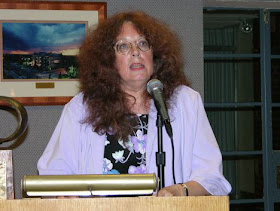by Pamela Sargent
Paul Grondahl’s Mayor Corning: Albany Icon, Albany Enigma, was another book that ripened on the bookshelf before I picked it up this year; this biography of the man who was the longest-serving mayor of any American city to date (Erastus Corning was elected mayor of Albany, New York in 1941 and died in 1983 while still in office) was first published by Washington Park Press in 1997 and in trade paperback by the State University of New York Press in 2007. Fellow Albanians are probably the prime audience for this book (I grew up and went to school in Albany, the kind of environment that leaves one marinated in politics and cynicism, before heading off to college, then moved back to Albany in 1996), but anybody interested in an intimate and well-researched look at the lives of upper-class WASPs in the early and middle twentieth centuries combined with what amounts to a workshop in machine politics as practiced by a master of the art, Daniel O’Connell, who ran Albany behind the scenes for decades and clearly provided William Kennedy with some of the material for his novels, will appreciate this biography. Grondahl offers a novelistic portrait of Corning, who turns out to be a much more complex and interesting character than I expected. Each section of the book covers a different facet of a man (the brilliant but lonely prep school student, the politician, the aristocrat who chose to join the U.S. Army during World War II as an enlisted man instead of as an officer, the distant husband and father, the beloved and awe-inspiring mayor) who was adept at presenting an entirely different persona to different groups of people, perhaps a necessity for any successful politician. Albany is still marked by Corning’s tenure, for better and for worse, while the closest companion and confidante the mayor had during his life, his former secretary Polly Noonan (another member of the O’Connell political machine) was the grandmother of Kirsten Gillibrand, one of New York’s current U.S. Senators. This biography convinces me that Polly Noonan also deserves a book, either a biography or maybe a novel, of her own.
Caroline Alexander’s The War That Killed Achilles, published in 2009 by Viking, is a close, detailed study of Homer’s Iliad that views it as an antiwar epic; Achilles’ wrath is seen as the result of questioning how much he actually owes his commander. Alexander explicitly compares Achilles’ challenge to Agamemnon, “I for my part did not come here for the sake of the Trojan spearmen to fight against them, since to me they have done nothing,” with Muhammad Ali’s refusal to fight in Vietnam: “I ain’t got no quarrel with the Viet Cong…I am not going 10,000 miles to help murder, kill and burn other people to simply help continue the domination of white slavemasters over dark people.” Her enthralling study almost inspires me, for the first time in ages, to pull out my old Oxford University Press edition of the Iliad in Greek, the same one I wrestled with while taking Greek in college, and read it again with fresh eyes.
As for recent science fiction jam-packed with speculation, ideas, and a lively and often satirical wit, I recommend Joan Slonczewski’s John W. Campbell Award winner The Highest Frontier, which Tor brought out in 2011. You get a space elevator, an alien invasion that has made parts of Earth nearly uninhabitable, a space habitat powered by microbes, a realistically disorienting and all-pervasive Internet-like system (Toynet), a troubled and intelligent protagonist (Jennifer Kennedy Ramos, a genetically-engineered descendant of the celebrated American Kennedys), a political campaign for the U.S. Presidency, and more, including the threat of disaster for both the Earth and the habitat that houses Frontera, the college Jenny attends. Slonczewski thrusts you headfirst into this future world but has the narrative strength to make you stay there long enough to find your bearings.
My most valued online reading this year was probably legendary numbers man Nate Silver’s blog, FiveThirtyEight, and Charlie Pierce’s fiercely eloquent posts at the Esquire Politics blog. Silver convinces me that a knowledge of statistics (a deep knowledge, not the superficial and all-too-common “I’ll look for some numbers that’ll shore up what I already think” attitude) is an essential survival skill; Pierce displays the power of righteous rage harnessed to words. While at the Science Fiction Research Association conference earlier this year, I went to a reading by Sarah Zettel during which she contended that the Great Depression was probably the most neglected and forgotten recent period of American history. (Her novel Dust Girl, published by Random House earlier this year, is set in the 1930s.) I thought of her comments while watching Ken Burns’s recent PBS documentary of that period, Dust Bowl. An environmental catastrophe caused by ignorance, carelessness, and greed; people losing their homes and livelihoods, the need to rethink our relationship with this planet – we’d better start recalling that period now, which seems more relevant than ever. We ignore the lessons of Dust Bowl at our, and the planet’s, peril.
Pamela Sargent won the Pilgrim Award, given by the SFRA for lifetime achievement in science fiction and fantasy scholarship, in 2012; she has also won the Nebula and Locus Awards. Her novel Farseed, second in her Seed Trilogy, will be out in trade paperback from Tor in January. Earthseed, first in the trilogy, was optioned by Paramount Pictures; Melissa Rosenberg, screenwriter for the “Twilight” movies, is writing the script and will produce through her Tall Girls Productions. Sargent also edited the Women of Wonder anthologies; her novels include the historical novel Ruler of the Sky, the science fiction novels Venus of Dreams and The Shore of Women, and the alternate history novel Climb the Wind. Her Web site is at www.pamelasargent.com.




No comments:
Post a Comment